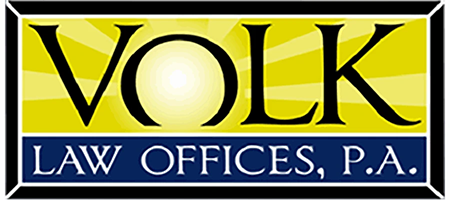Dimwitted or Deceptive: Legal Liability from a Vague Scope
Posted: August 1st, 2025
Written By: Mark Siemer
A vague scope of work (Scope) in a construction contract can have far-reaching and costly repercussions, affecting everything from budget and schedule to client satisfaction and legal exposure. In Florida, not only does an ill-defined Scope heighten the risk of disputes and misunderstandings, but it may also raise concerns under the Florida Deceptive and Unfair Trade Practices Act (FDUTPA), exposing participants to potential legal liability.
The Impact of a Vague Scope of Work
Commercial contracts, and bigger projects, tend to have a specific scope of work. The more specific the scope of work, the more likely the project is to complete as planned because everyone knows what the plan is. But making that scope of work requires a lot of work from both sides of the project and requires a lot of expertise on both sides of the contract. When the Scope is vague or ambiguous, parties can interpret their responsibilities and deliverables in different—and sometimes conflicting—ways.
The practical impacts of this vagueness include:
- Misaligned Expectations: When stakeholders are unclear about what is, or is not, included in the contract, disputes are more likely. For example, the owner might expect the soffit and fascia be replaced as part of a contract to reroof their home because it touches the roof and appears part of the roof. The contractor might believe it is excluded because the soffit and fascia not an intrinsic part of the roof.
- Scope Creep and Change Orders: Ambiguity allows for after-the-fact addition of tasks or requirements, often leading to contentious change orders, schedule delays, and unexpected costs.
- Project Delays: If gaps or conflicts in the Scope arise, work can stall as parties debate their responsibilities, further impacting the schedule and sometimes even halting progress until disagreements are resolved.
- Quality and Cost Issues: Without clearly defined standards or deliverables, work may fall short of expectations, resulting in quality concerns and increased costs from rework or corrective actions.
- Strained Relationships: Ongoing disputes can erode trust between parties, damaging reputations and hampering potential future collaborations.
Challenges for Homeowners
Residential construction projects are particularly vulnerable to the negative effects of a vague scope of work. Unlike commercial clients, residential homeowners are often less familiar with construction terminology and industry practices, making them more likely to misunderstand what is included in the project or to expect outcomes that were never clearly defined in the contract. For example, if a homeowner believes they are paying a premium price for cabinets in a fixed price contract, they might believe that they are going to get premium materials or features “as standard” in the cabinets. The builder might believe that only the items specifically called out in the contract are required and everything else is open to their discretion so they can reduce costs.
Who is right? The contract does not say. That leads us to the Florida Deceptive and Unfair Trade Practices Act.
The Role of Client Expectations
Client expectations are often shaped by their own interpretations of what is “standard.” If a Homeowner is paying for premium appliances and premium wood, and premium paint, they likely anticipate that the hardware is going to match the quality of the rest of the choices. But if the contract does not say in writing, everyone is at risk.
The Florida Deceptive and Unfair Trade Practices Act is designed to protect consumers and businesses from "unfair methods of competition, unconscionable acts, or practices, and unfair or deceptive acts or practices" in the conduct of any trade or commerce. In the context of construction, if Scope is so vague that it misleads the client—intentionally or not—about what will be provided, it could rise to the level of a deceptive or unfair practice under FDUTPA.
For example, if the salesperson who pitched the job makes comments like “everything we do is custom, nothing is builder grade.” But the hardware comes off the shelf of The Home Depot, the disconnect between the sales team and the construction team may have created legal liability.
To prevail on a FDUTPA claim, the Homeowner must prove three elements:
- A deceptive act or unfair practice occurred, using an objective standard of what a reasonable consumer would believe.
- The deceptive act or unfair practice caused the homeowner’s harm.
- The homeowner suffered actual damages.
The good news for contractors is proving this kind of claim is very hard to prove unless the exchange happens in writing. The good news for homeowners is that a very broad range of conduct can turn the contractor’s cost savings effort into a violation of FDUTPA if you have expressed expectations in writing. For example, if a homeowner texts the sales team that they want elm wood in the cabinets from a certain manufacturer, and the contract only shows a price for cabinets from the manufacturer, without a reference to the materials, and the cabinets that are installed do not use elm wood, the contractor has potentially violated the FDUTPA by representing that the scope of work reflects what the homeowner requested without performing the same.
That being said, it is always better to do the project right the first time than fight over it later. Even if you win.
Best Practices to Avoid Problems
- Detail Every Aspect: List all deliverables, timelines, materials, and standards. Avoid industry jargon.
- Clear Communication: Review the Scope with all stakeholders to confirm mutual understanding.
- Update as Needed: If changes occur, promptly update the Scope to reflect new agreements and prevent ambiguity.
A carefully drafted, unambiguous scope of work is not just a project management tool—it is the foundation of legal, financial, and reputational protection for everyone involved in Florida construction projects.
Need assistance with drafting or reviewing a construction contract? Call Volk Law Offices and ask for Mark Siemer at 321-726-8338.
The matters discussed here are general in nature and are not to be relied upon as legal advice. Every specific legal matter requires specific legal attention.
The law is constantly changing and matters discussed today may not be the same tomorrow. Legal matters are also subject to different interpretations by attorneys, judges, jurors and scholars. No attorney-client relationship is intended or created as a result of matters discussed here. You should consult counsel of your choice if you have any dealings in these areas of the law. Volk Law Offices, P.A. and its attorneys make no representations or warranties with respect to the accuracy or completeness of the matters addressed.

